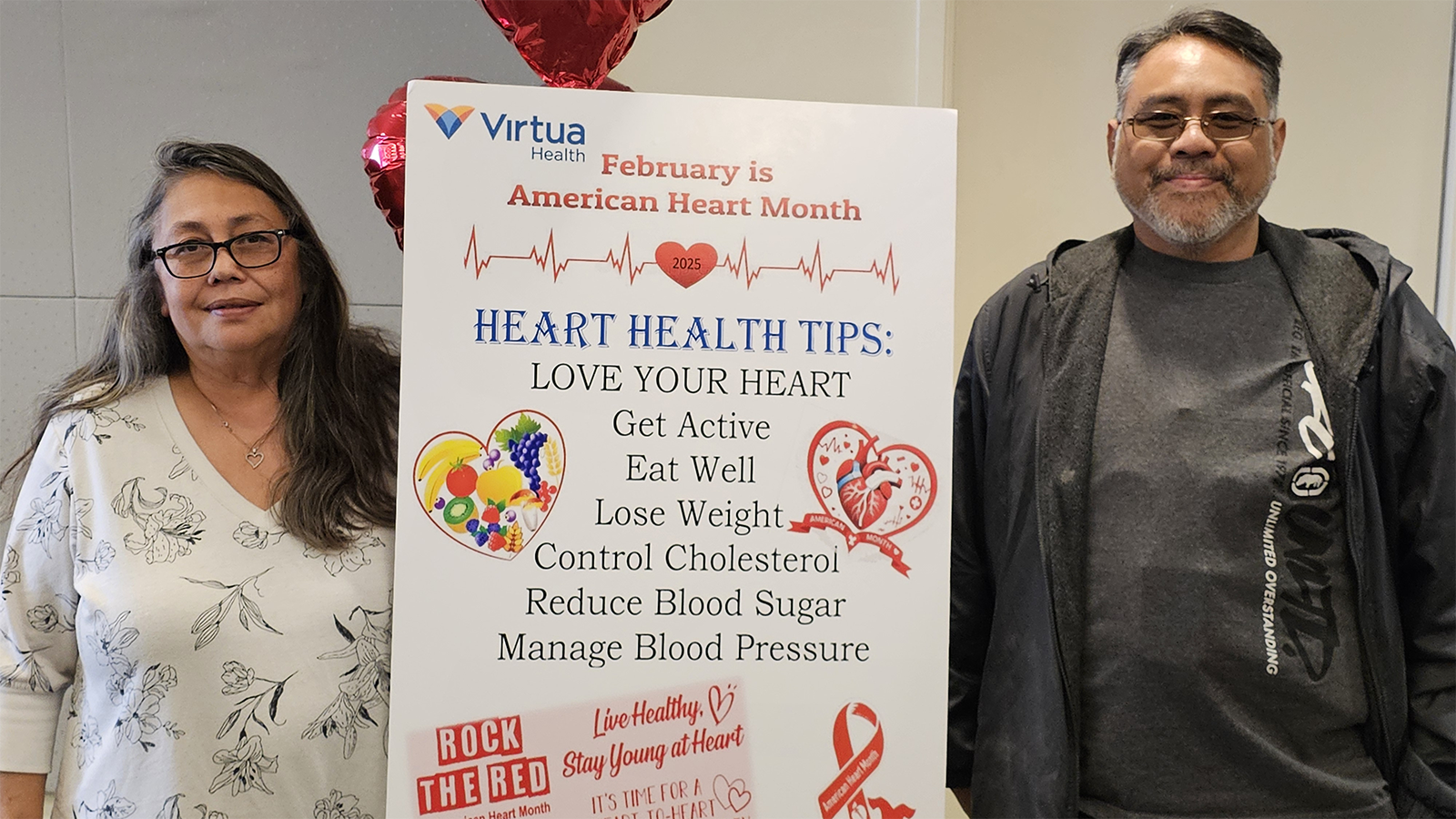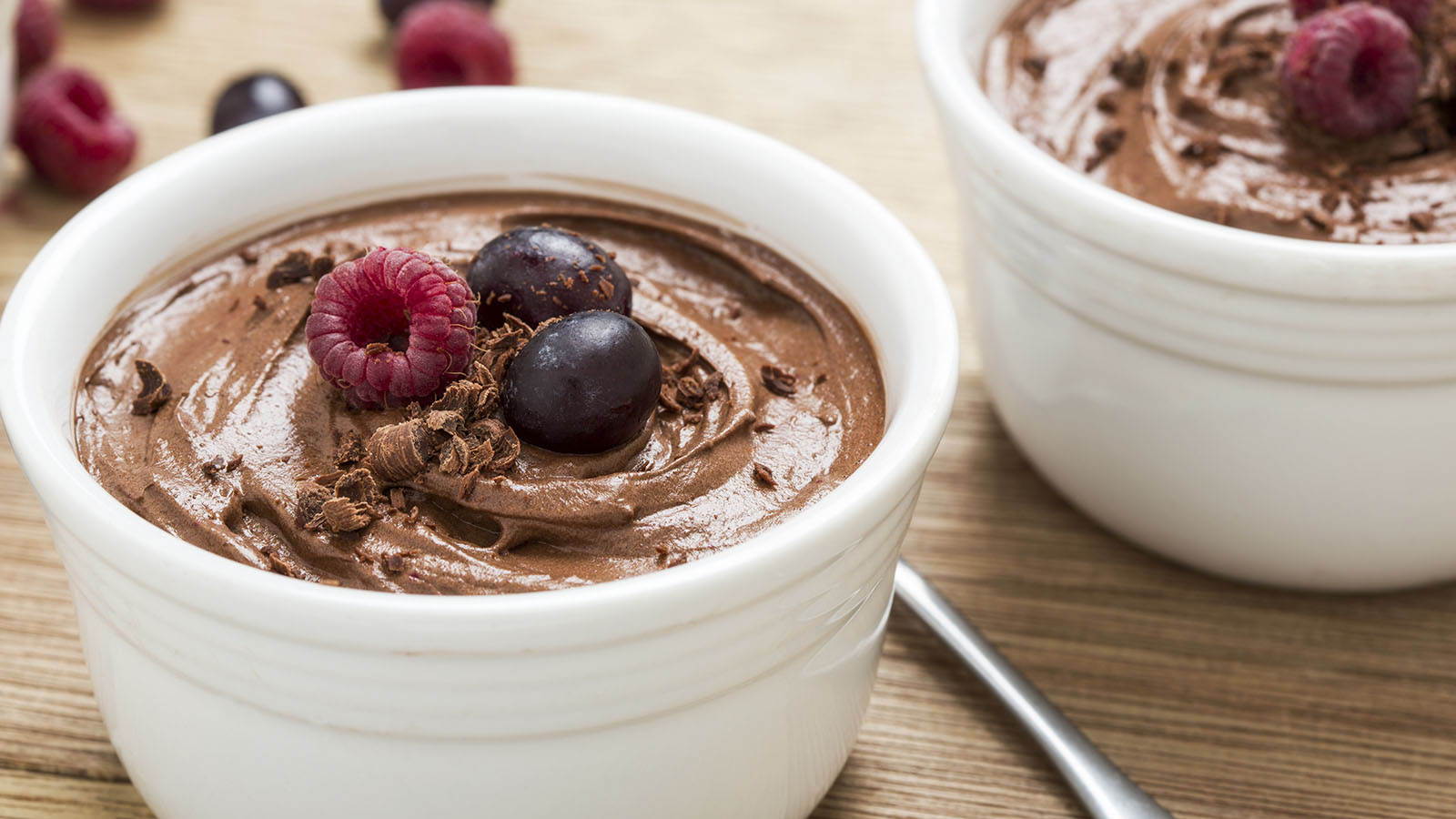Five Mindfulness Tips That Can Help Heal Your Heart
It’s OK to feel upset at times. But if your emotions are too frequent or intense, your heart could pay the price. Virtua cardiologist Hafeza Shaikh, DO, offers some tips to heal both the mind and the heart.

By Hafeza Shaikh, DO, FACC, RPVI, FACOI, Cardiologist – Virtua Cardiology
Can we have a heart-to-heart about stress, anger, and depression? It’s totally understandable to feel upset at times.
In small doses, these feelings serve a useful purpose by alerting you to problems and challenges in your life. But if your emotions are too frequent or intense, your health may suffer—and your heart could pay the price.
The heart and mind are intimately connected. Chronic stress and depression are seen as independent risk factors for heart disease, right alongside smoking, high cholesterol and obesity.
An Emotional Chain Reaction
When you’re angry, tense, frightened, or depressed, your body naturally releases coping hormones like cortisol and adrenaline. They create a “fight or flight” response: Your heart beats more rapidly, your blood vessels narrow—increasing your blood pressure—and your blood sugar rises.
After the stress subsides, your blood pressure and heart rate should as well. But if you’re in a chronic emotional state, your body doesn’t have a chance to recover. This can damage your artery walls and heighten your risk for heart attack and stroke.
If you already have coronary artery disease or heart failure, high emotions may worsen your condition.
And it’s not just the stress itself that’s harmful. Some people who are constantly stressed try to plow through it by smoking, overeating, or drinking too much alcohol. Instead of helping, these unhealthy habits can backfire and end up hurting your heart.
Five Ways to Lower the Temperature
Try out these five tips to help keep your emotions from spiraling out of control:
- Call a time-out in tense situations. Step away if you can. Take some deep, calming breaths and collect your thoughts before reacting.
- Exercise. Go for a walk, bike ride, or swim. Try to exercise at least 30 minutes a day.
- Do an activity you enjoy. Watch TV, listen to music, read, or talk to a friend.
- Meditate. Download a free app like Calm or Headspace. Yoga and tai chi are also great ways to relieve stress.
- Talk to a counselor or join a stress management program.
It’s impossible to stay happy all the time. By acknowledging and learning how to handle your emotions, you can improve your heart health and overall well-being.
Live Your Healthiest Life
How heart healthy are your habits? Take our quick quiz to find out.
If you need help improving your heart health, we’re here for you. Make an appointment with a Virtua cardiologist at 888-847-8823.
There's So Much More to Explore
Discover expert insights, inspiring stories, health tips, and more by exploring the content below!

Easy, Healthy Lunch Ideas for the Beach

How to Stay Cool and Prevent Heat Illness All Summer Long

Do Not Get Burned by These Sunscreen Myths

Beat the Bugs and Save Your Summer

How to Have a Healthy Pregnancy if You're Overweight

Why You Get Sick on Vacation (and How to Stay Healthy While Traveling)
6 Hot Tips for a Safer Summer
4 Surprising Health Truths You Should Know
5 Interesting Facts About Your Heart

Is Low Sex Drive Normal? Revealing the Complex Causes of Low Libido in Women
Get to the Bottom of Blood Pressure Numbers

CABG Surgery: What Women Should Know About Heart Health and Healing

5 Feel-Good Activities to Explore Around South Jersey

When to Take Action for a Stronger Heart

Stress Incontinence vs. Urge Incontinence: What's the Difference?

Tips to Support Your Childs Mental Health

HeartTalk Magazine

3 Changes You Can Make Today to Lower Your Cancer Risk

A Lung Cancer Screening Could Save Your Life

Mood Swings vs. Mood Disorders: Know the Signs and Get Help
Are emotional ups and downs disrupting daily life? Learn common signs of mood disorders, and when to talk to a doctor about diagnosis and treatment options.

Take Pride in our Health: Must Dos for LGBTQ+ Preventative Care

Protect Yourself From Tick Bites and Lyme Disease

Groundbreaking Renal Denervation Procedure Controls a Lifetime of High Blood Pressure

Patient Story: LVAD Mechanical Pump Strengthens Michael's Heart Function

10 Quick Ways to De-Stress

4 Ways to Stay Fit and Healthy on a Budget

Mitral Valve Surgery Keeps Yaneth Living the American Dream

From Restless to Restful: How Movement Improves Sleep

5 Simple Ways to Spring Clean Your Wellness Routine
Inside Look at Blood Vessels Aids PAD Treatment
Denise Davis: Pay Attention to Your Heart Health

Best Foods for Kidney Health

What Causes Food Addiction And What Are The Signs

5 Essential Winter Foot Care Tips When You Have Diabetes

Sweet Music: Trust, Teamwork Save Justin from Heart Attack

Complex Heart Surgery Nets James a Lifelong Friend

Your 10-Point Plan to Avoid Winter Weight Gain

Be Fast and Spot the Signs of Stroke

Surprising Symptoms May Signal Stroke In Women

8 Key Steps to Better Blood Pressure Control

5 Back Stretches for the Work-From-Home Workweek

The HPV Vaccine: A Powerful Shield Against Cervical Cancer

How to Prevent and Treat Urinary Tract Infections
Signs You Should Get Treated For Vein Problems

One New Heart Valve Saves Two Lives in the Tritten Family
What You Need to Know About Heart Failure

6 Numbers Key to Keeping Your Heart Healthy

4 Easy Ways to Treat and Prevent Runner's Knee

Five Mindfulness Tips That Can Help Heal Your Heart
Working from Home? Take a Quick Break to Stretch Your Wrists

Watchman Heart Device: a Technological Breakthrough for Blood Clot Prevention

Albert's Emergency Cardiac Surgery Is a 'Story of a Lifetime'

Love Your Heart: Essential Care Tips for Every Stage of Life

How Do I Measure My Blood Pressure at Home?

How Do I Improve My Cholesterol Levels?

3 Ways to Reduce Your Stroke Risk

How the Unique Stages of a Womans Heart Affect Her Health

Can Your Gut Health Affect Your Heart?
Advanced Heart Failure Therapies Get Bernadine Back to Full Speed

Put Your Mammogram Appointment on the Top of Your To-Do List

Overcoming Addiction, Philip Now Sees More Positive Side to Life

How Sex Keeps You Healthy as You Age

Protect Your Child From HPV and Related Cancers

Why IUDs Might Be The Most Effective Birth Control

5 Things You're Too Embarrassed to Tell Your OBGYN

4 Not-So-Crazy Questions to Ask Your Doctor

What to Know About Cervical Cancer Screenings

Keeping the Beat: Advanced Heart Surgery for Aortic Aneurysm

Heart-Healthy Summer Recipe: Hummus and Veggies

4 Delicious Heart-Healthy Recipes Perfect for Summer

Heart Healthy Summer Recipe: Dessert Parfait

Heart-Healthy Summer Recipe: Pear and Walnut Salad

Heart-Healthy Summer Recipe: Terrific Turkey Burgers
Atrial Fibrillation and Stroke: What's the Connection?
Heart Tests Your Doctor May Order
Managing Pregnancy for Mothers With Heart Conditions

Heart Healthy Recipe: Basil Pesto Pasta With Seared Vegetables

Heart Healthy Recipe Chocolate Avocado Chia Pudding
Keep Your Heart Rhythm in Check With Your Smartwatch
Mind Your Meds for Blood Pressure Risks
Magic Pill for Heart Health? Cut 300 Calories a Day
3 Smart Ways to Boost Your Heart Health
3 Best Exercises For Heart Health

Get Your Heart Pumping With These 25 Workout Songs
Your Chest Pain: Heartburn, Heart Attack, or Something Else?
3 Heart Healthy Recipes to Win Valentines Day
How Work and Home Stress Can Affect You
Why Improving Your Health Is Going To The Dogs And Cats
Why Younger Women Need Start NOW To Safeguard Their Hearts From Heart Attacks
Can You Die of a Broken Heart?
Mitral Valve Surgery Opens Doors for Improved Quality of Life
6 Healthy Habits to Start in Your 20s for Better Lifelong Health
Do You Have a Fatty Heart?
Get Pumped! Assist Devices Can Improve Heart Failure Symptoms
A Cardiologists Advice on Heart-saving Emergency Cardiac Care
Virtua Doctor’s Experience Is a Warning for All About COVID-19 and Strokes
You May Feel Fine, but Gregory Says "Don't Skip Your Medical Care"
In Sickness and in Health: Couples Often Share Heart Disease Risk
"Reduce Your Heart Disease Risk With a Plant-based Diet"
Hybrid Robotic Heart Surgery and Valve Replacement Restores Quality of Life
Can Marijuana Hurt Your Heart Health?
6 Tips for Restoring Your Heart Rhythm
Eat Smart for Your Heart
Cardiac Rehab: Strengthening Your Heart After Leaving the Hospital
Your Heart Needs A Good Nights Sleep
Are You at Risk for AAA—the Silent Killer?
The Cardio Oncology Team Protects Your Heart During Cancer Treatment
Get Relief From Painful Varicose Veins This Summer
Exercise Your Way to a Stronger Heart
Fish Oil: A Good Catch or a Scam?
My Heart Seems to Skip a Beat - Should I Be Worried?
Menu Planning? Try These 5 Heart-smart Substitutions

5 Health Risks Tied to Weight

Heart-Healthy Recipe: Maple Orange Salmon With Mango Salsa
Do Not Wait to Get Help When a Stroke or Heart Attack Strikes
4 Reasons Why Heart Patients Should Follow COVID 19 Safety Guidelines

Exercise Yourself Off of Blood Pressure Medication
Young Mother Finds Support for Anxiety After Rare Cardiac Event
Is Your Heart Age Older Than You?
Heart Healthy Recipe: Mediterranean Shrimp Salad

